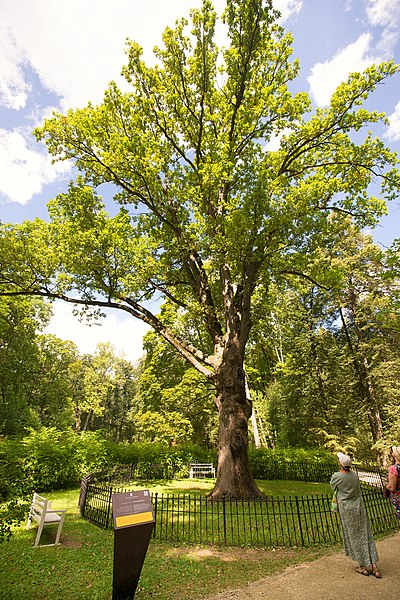The Turgenev State Memorial and Natural Museum-Reserve. Photo credit: Aleksey Lepilin/commons.wikimedia.org (CC-BY-SA-4.0)
Scientists at the All-Russian Research Institute of Forest Genetics, Breeding and Biotechnology in Voronezh have cloned the Turgenev oak planted by the writer Ivan Turgenev in his mother's estate in the Oryol region. The tree was taken down by a hurricane last fall, TASS reports.
It is believed that the author of Fathers and Sons planted an oak tree in the 1820s or 1830s, and by the time the tree was destroyed, it was approaching 200 years old. For many years, the Turgenev oak was one of the main exhibits of the Spasskoe-Lutovinovo museum-reserve.
According to the acting director of the institute, Oleg Korchagin, scientists have received five microclones of the tree in a test tube. They were derived from wood tissue samples taken by scientists from the original oak tree. According to Korchagin, the work was complicated by the old age of the tree and the rotting of the fallen oak.
Five stages must be completed from sampling to planting clones in the ground. Scientists are currently at the second stage. The seedlings will be hatched from the samples in the greenhouse. For the institute, this is the first experience of working with such an old tree.
The hurricaine hit the Oryol region at the end of November 2021, the wind uprooted the Turgenev oak, the height of which reached 30 meters. The management of the museum called the tree a living symbol of love for the motherland.
Russkiy Mir


